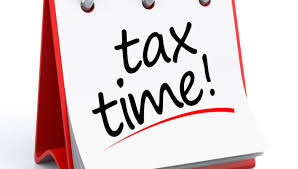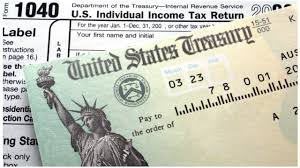Tax Season Begins January 29!
The Internal Revenue Service announced the tax season will begin Monday, Jan. 29, 2018.
The IRS reminds taxpayers that, by law, the IRS cannot issue refunds claiming the Earned Income Tax Credit (EITC) and the Additional Child Tax Credit (ACTC) before mid-February. While the IRS will process those returns when received, it cannot issue related refunds before mid-February. The IRS expects the earliest EITC/ACTC related refunds to be available in taxpayer bank accounts or on debit cards starting on Feb. 27, 2018, if they chose direct deposit and there are no other issues with the tax return. The IRS also reminds taxpayers that they should keep copies of their prior-year tax returns for at least three years. Taxpayers who are using a tax software product for the first time will need their adjusted gross income from their 2016 tax return to file electronically. Taxpayers who are using the same tax software they used last year will not need to enter prior-year information to electronically sign their 2017 tax return. Using an electronic filing PIN is no longer an option.
We Are Accepting Clients! To schedule your tax appointment, call Tina at 920-277-2991 or email at tinak@integrityintaxllc.com.
This year, a portion of tax fees collected, will be donated to Saving Paws Animal Rescue for the  fundraising of a transport van!
fundraising of a transport van!
Follow Saving Paws on FaceBook at https://www.facebook.com/SavingPawsAnimalRescue/.
Tax Deadline April 17!
The filing deadline to submit 2017 tax returns is Tuesday, April 17, 2018, rather than the traditional April 15 date. In 2018, April 15 falls on a Sunday, and this would usually move the filing deadline to the following Monday – April 16. However, Emancipation Day – a legal holiday in the District of Columbia – will be observed on that Monday, which pushes the nation’s filing deadline to Tuesday, April 17, 2018. Under the tax law, legal holidays in the District of Columbia affect the filing deadline across the nation.
IMPORTANT: Taxpayer’s not able to file their tax returns by April 17, 2018 can file for an extension. However, the extension is extra time to file the tax return, NOT pay the tax due. Any tax due must be submitted by April 17, 2018 to avoid penalties and interest.
Tax Refunds!
Choosing e-file and direct deposit for refunds remains the fastest and safest way to file an accurate  income tax return and receive a refund. The IRS expects more than four out of five tax returns will be prepared electronically using tax software.
income tax return and receive a refund. The IRS expects more than four out of five tax returns will be prepared electronically using tax software.
The IRS still anticipates issuing more than nine out of 10 refunds in less than 21 days, but there are some important factors to keep in mind for taxpayers.
By law, the IRS cannot issue refunds on tax returns claiming the Earned Income Tax Credit or the Additional Child Tax Credit before mid-February. This applies to the entire refund — even the portion not associated with the EITC and ACTC.
IRS expects the earliest EITC/ACTC related refunds to be available in taxpayer bank accounts or on debit cards starting on Feb. 27, 2018, if those taxpayers chose direct deposit and there are no other issues with the tax return. This additional period is due to several factors, including banking and financial systems needing time to process deposits.
After refunds leave the IRS, it takes additional time for them to be processed and for financial institutions to accept and deposit the refunds to bank accounts and products. The IRS reminds taxpayers many financial institutions do not process payments on weekends or holidays, which can affect when refunds reach taxpayers. For EITC and ACTC filers, the three-day holiday weekend involving Presidents’ Day may affect their refund timing.
The Where’s My Refund? tool on IRS.gov and the IRS2Go phone app will be updated with projected deposit dates for early EITC and ACTC refund filers in late February, so those filers will not see a refund date on Where’s My Refund? or through their software packages until then. The IRS, tax preparers and tax software will not have additional information on refund dates, so Where’s My Refund? remains the best way to check the status of a refund.